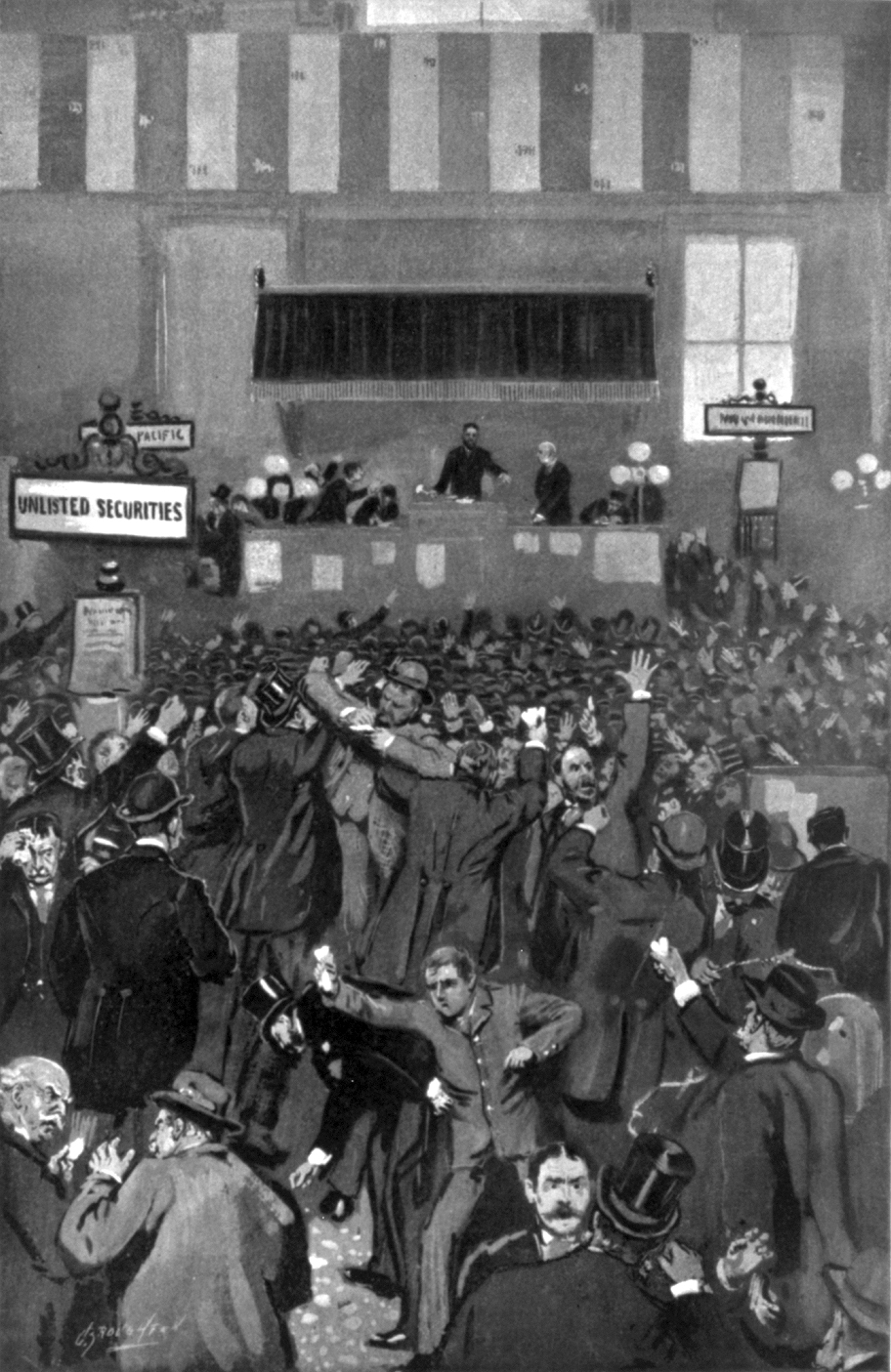|
Sara Iredell Fleetwood
Sara Iredell Fleetwood (1849–1908) was an American clubwoman and teacher. She was involved in the movement of black women into professional nursing, graduating as one of the first nurses from Howard University's Freedman's Hospital School of Nursing. She became the nursing superintendent at Freedman's, organized the Freedmen's Nursing Association and served as the first African American woman on the nurse's examining board of the District of Columbia. Early life Sara Louise Iredell was born in April 1849 in St. Louis, Missouri to Elizabeth Susan (née Webb) and Geoffrey George Iredell. Her father was originally from Edenton, North Carolina, and was the son of a slave who had been emancipated. At the time Sarah and her sister Laura (1850–1909) were born, he was operating a barber shop in St. Louis. Her mother, originally from Philadelphia, Pennsylvania was the sister of Frank J. Webb, and they were the children of abolitionists Louisa (née Burr), illegitimate daughter o ... [...More Info...] [...Related Items...] OR: [Wikipedia] [Google] [Baidu] |
Brackets
A bracket is either of two tall fore- or back-facing punctuation marks commonly used to isolate a segment of text or data from its surroundings. Typically deployed in symmetric pairs, an individual bracket may be identified as a 'left' or 'right' bracket or, alternatively, an "opening bracket" or "closing bracket", respectively, depending on the directionality of the context. Specific forms of the mark include parentheses (also called "rounded brackets"), square brackets, curly brackets (also called 'braces'), and angle brackets (also called 'chevrons'), as well as various less common pairs of symbols. As well as signifying the overall class of punctuation, the word "bracket" is commonly used to refer to a specific form of bracket, which varies from region to region. In most English-speaking countries, an unqualified word "bracket" refers to the parenthesis (round bracket); in the United States, the square bracket. Various forms of brackets are used in mathematics, with ... [...More Info...] [...Related Items...] OR: [Wikipedia] [Google] [Baidu] |
Christian Fleetwood
Christian Abraham Fleetwood (July 21, 1840 – September 28, 1914), was an African American non-commissioned officer in the United States Army, a commissioned officer in the D.C. National Guard, an editor, a musician, and a government official. He received the Medal of Honor for his actions during the American Civil War. Early life Fleetwood was born in Baltimore on July 21, 1840, the son of Charles and Anna Maria Fleetwood, both were free persons of color. He received his early education in the home of a wealthy sugar merchant and chairman of Baltimore's chamber of commerce, John C. Brunes, and his wife. The latter treated Fleetwood like her son and taught him to read and write. He continued his education at the Maryland State Colonization Society, went briefly to Liberia and Sierra Leone, and graduated in 1860 from Ashmun Institute (later known as Lincoln University (Pennsylvania), Lincoln University) in Oxford, Pennsylvania. He established and published ''The Lyceum Observer' ... [...More Info...] [...Related Items...] OR: [Wikipedia] [Google] [Baidu] |
People From Washington, D
A person ( : people) is a being that has certain capacities or attributes such as reason, morality, consciousness or self-consciousness, and being a part of a culturally established form of social relations such as kinship, ownership of property, or legal responsibility. The defining features of personhood and, consequently, what makes a person count as a person, differ widely among cultures and contexts. In addition to the question of personhood, of what makes a being count as a person to begin with, there are further questions about personal identity and self: both about what makes any particular person that particular person instead of another, and about what makes a person at one time the same person as they were or will be at another time despite any intervening changes. The plural form "people" is often used to refer to an entire nation or ethnic group (as in "a people"), and this was the original meaning of the word; it subsequently acquired its use as a plural form of p ... [...More Info...] [...Related Items...] OR: [Wikipedia] [Google] [Baidu] |
1908 Deaths
Nineteen or 19 may refer to: * 19 (number), the natural number following 18 and preceding 20 * one of the years 19 BC, AD 19, 1919, 2019 Films * ''19'' (film), a 2001 Japanese film * ''Nineteen'' (film), a 1987 science fiction film Music * 19 (band), a Japanese pop music duo Albums * ''19'' (Adele album), 2008 * ''19'', a 2003 album by Alsou * ''19'', a 2006 album by Evan Yo * ''19'', a 2018 album by MHD * ''19'', one half of the double album '' 63/19'' by Kool A.D. * '' Number Nineteen'', a 1971 album by American jazz pianist Mal Waldron * ''XIX'' (EP), a 2019 EP by 1the9 Songs * "19" (song), a 1985 song by British musician Paul Hardcastle. * "Nineteen", a song by Bad4Good from the 1992 album ''Refugee'' * "Nineteen", a song by Karma to Burn from the 2001 album ''Almost Heathen''. * "Nineteen" (song), a 2007 song by American singer Billy Ray Cyrus. * "Nineteen", a song by Tegan and Sara from the 2007 album '' The Con''. * "XIX" (song), a 2014 song by S ... [...More Info...] [...Related Items...] OR: [Wikipedia] [Google] [Baidu] |
1849 Births
Events January–March * January 1 – France begins issue of the Ceres series, the nation's first postage stamps. * January 5 – Hungarian Revolution of 1848: The Austrian army, led by Alfred I, Prince of Windisch-Grätz, enters in the Hungarian capitals, Buda and Pest. The Hungarian government and parliament flee to Debrecen. * January 8 – Hungarian Revolution of 1848: Romanian armed groups massacre 600 unarmed Hungarian civilians, at Nagyenyed.Hungarian HistoryJanuary 8, 1849 And the Genocide of the Hungarians of Nagyenyed/ref> * January 13 ** Second Anglo-Sikh War – Battle of Tooele: British forces retreat from the Sikhs. ** The Colony of Vancouver Island is established. * January 21 ** General elections are held in the Papal States. ** Hungarian Revolution of 1848: Battle of Nagyszeben – The Hungarian army in Transylvania, led by Josef Bem, is defeated by the Austrians, led by Anton Puchner. * January 23 – Elizabeth Blackwell is awarded her M.D. by ... [...More Info...] [...Related Items...] OR: [Wikipedia] [Google] [Baidu] |
The Washington Post
''The Washington Post'' (also known as the ''Post'' and, informally, ''WaPo'') is an American daily newspaper published in Washington, D.C. It is the most widely circulated newspaper within the Washington metropolitan area and has a large national audience. Daily broadsheet editions are printed for D.C., Maryland, and Virginia. The ''Post'' was founded in 1877. In its early years, it went through several owners and struggled both financially and editorially. Financier Eugene Meyer purchased it out of bankruptcy in 1933 and revived its health and reputation, work continued by his successors Katharine and Phil Graham (Meyer's daughter and son-in-law), who bought out several rival publications. The ''Post'' 1971 printing of the Pentagon Papers helped spur opposition to the Vietnam War. Subsequently, in the best-known episode in the newspaper's history, reporters Bob Woodward and Carl Bernstein led the American press's investigation into what became known as the Waterga ... [...More Info...] [...Related Items...] OR: [Wikipedia] [Google] [Baidu] |
The Washington Star
''The Washington Star'', previously known as the ''Washington Star-News'' and the Washington ''Evening Star'', was a daily afternoon newspaper published in Washington, D.C., between 1852 and 1981. The Sunday edition was known as the ''Sunday Star''. The paper was renamed several times before becoming ''Washington Star'' by the late 1970s. For most of that time, it was the city's newspaper of record, and the longtime home to columnist Mary McGrory and cartoonist Clifford K. Berryman. On August 7, 1981, after 128 years, the ''Washington Star'' ceased publication and filed for bankruptcy. In the bankruptcy sale, ''The Washington Post'' purchased the land and buildings owned by the ''Star'', including its printing presses. History ''The Washington Star'' was founded on December 16, 1852, by Captain Joseph Borrows Tate. It was originally headquartered in Washington's "Newspaper Row" on Pennsylvania Avenue. Tate named the paper ''The Daily Evening Star''. In 1853, Texas surveyor ... [...More Info...] [...Related Items...] OR: [Wikipedia] [Google] [Baidu] |
Newspapers
A newspaper is a periodical publication containing written information about current events and is often typed in black ink with a white or gray background. Newspapers can cover a wide variety of fields such as politics, business, sports and art, and often include materials such as opinion columns, weather forecasts, reviews of local services, obituaries, birth notices, crosswords, editorial cartoons, comic strips, and advice columns. Most newspapers are businesses, and they pay their expenses with a mixture of subscription revenue, newsstand sales, and advertising revenue. The journalism organizations that publish newspapers are themselves often metonymically called newspapers. Newspapers have traditionally been published in print (usually on cheap, low-grade paper called newsprint). However, today most newspapers are also published on websites as online newspapers, and some have even abandoned their print versions entirely. Newspapers developed in the 17 ... [...More Info...] [...Related Items...] OR: [Wikipedia] [Google] [Baidu] |
The Colored American (Washington, D
''The Colored American'' may refer to: * ''The Colored American'' (Augusta, Georgia) an Augusta, Georgia newspaper of 1865-1866 * ''The Colored American'' (New York City), a New York City newspaper of 1837–1842 * ''The Colored American'' (Washington, D.C.), a Washington, D.C., newspaper of 1893–1904 * '' The Colored American Magazine'', a magazine published in Boston and New York, 1900–1909 {{DEFAULTSORT:Colored American, The ... [...More Info...] [...Related Items...] OR: [Wikipedia] [Google] [Baidu] |
Library Of Congress
The Library of Congress (LOC) is the research library that officially serves the United States Congress and is the ''de facto'' national library of the United States. It is the oldest federal cultural institution in the country. The library is housed in three buildings on Capitol Hill in Washington, D.C.; it also maintains a conservation center in Culpeper, Virginia. The library's functions are overseen by the Librarian of Congress, and its buildings are maintained by the Architect of the Capitol. The Library of Congress is one of the largest libraries in the world. Its "collections are universal, not limited by subject, format, or national boundary, and include research materials from all parts of the world and in more than 470 languages." Congress moved to Washington, D.C., in 1800 after holding sessions for eleven years in the temporary national capitals in New York City and Philadelphia. In both cities, members of the U.S. Congress had access to the sizable colle ... [...More Info...] [...Related Items...] OR: [Wikipedia] [Google] [Baidu] |
Panic Of 1893
The Panic of 1893 was an economic depression in the United States that began in 1893 and ended in 1897. It deeply affected every sector of the economy, and produced political upheaval that led to the political realignment of 1896 and the presidency of William McKinley. Causes The Panic of 1893 has been traced to many causes, one of those points to Argentina; investment was encouraged by the Argentine agent bank, Baring Brothers. However, the 1890 wheat crop failure and a failed coup in Buenos Aires ended further investments. In addition, speculations in South African and Australian properties also collapsed. Because European investors were concerned that these problems might spread, they started a run on gold in the U.S. Treasury. Specie was considered more valuable than paper money; when people were uncertain about the future, they hoarded specie and rejected paper notes.Nelson, Scott Reynolds. 2012. A Nation of Deadbeats. New York: Alfred Knopf, p. 189. During th ... [...More Info...] [...Related Items...] OR: [Wikipedia] [Google] [Baidu] |

_1938.jpg)




